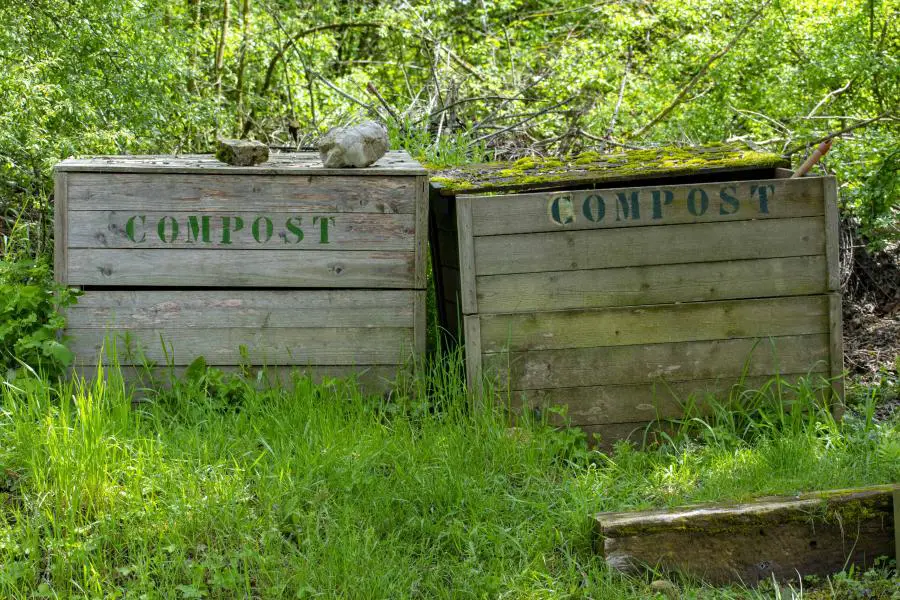Becoming a composting expert doesn’t happen overnight, and it can take a lot of trial and error getting it right.
A common problem people face is their compost pile not getting hot.
Cold compost can take a very long time to breakdown, so it’s not ideal if you have limited composting space in the garden, or are simply itching to use your compost.
Which begs the question, how do you heat up compost?
How to heat up compost
You’d be forgiven for thinking that you can heat compost up by leaving it out in the sun for a few hours.
Unfortunately, it’s a bit more complicated than that.
Heat is a by-product of replicating bacteria in the compost. When there’s lots of this bacterial activity, the compost becomes hot.
Therefore, to create heat, you need to ensure your pile provides optimal conditions for the bacteria to grow.
All the standard composting rules apply, but there are few extra things you can do to heat your compost faster.
When you employ the following tactics, your compost pile should heat up in a few days.
Turn the pile
Sometimes all the pile needs is a good turn.
If you’ve added in lots of a similar type of material at once such as grass clippings or sawdust then these can mat and prevent oxygen from circulating.
Turning the pile will mix everything up and get oxygen flowing which can help heat the compost pile up.
Add more Nitrogen
Nitrogen is a necessary component in any compost pile. It’s food for the bacteria and gets into the compost via ‘green’ materials.
Grass clippings, manure, vegetable scraps and coffee are all example of green materials.
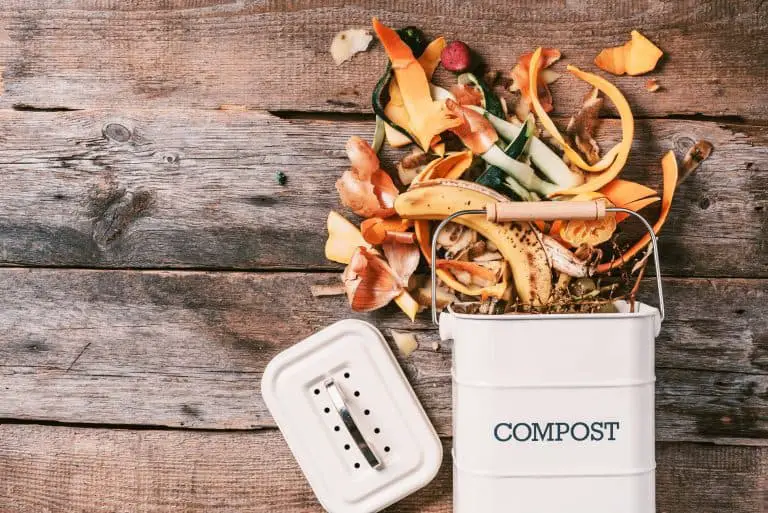
You should combine these with ‘brown’ materials in the correct ratio or you risk creating smelly compost. Three parts brown to one part green is generally accepted as a good ratio.
If you find your compost is being slow to heat up, try adding more nitrogen-rich material. Make sure to turn the pile if you do this to spread the material out.
Blood meal, bone meal, urea, and corn gluten meal are highly concentrated forms of nitrogen. These materials are good to add if you don’t want to overload your bin with extra greens.
Check the moisture levels
Compost piles need to have the correct level of moisture to decompose properly.
The ideal pile should be comparable to a damp sponge in texture. A handful shouldn’t crumble, and you shouldn’t be able to squeeze much water out of it.
If you think the pile is too wet:
- turn the pile to help aerate it and get oxygen into the mixture
- leave it out in the sun for a bit to help evaporate some of the moisture
- add some more dry (brown) material such as dry shredded leaves or wood shavings to help soak up the moisture. Wood can be slow to decompose, but there are lots of ways to speed this up.
If you think the pile is too dry:
- add some water and mix
- keep it out of the sun to stop the moisture evaporating
- add in some more ‘green’ material as these tend to be wet materials, this will have the added benefit of introducing extra nitrogen
Make the pile bigger
While it’s possible to get hot compost with a pile of any size, it’s much easier with a larger pile because there’s more margin for error.
The more material there is, the more bacteria can grow and generate heat, and the bigger the core is, which is naturally the hottest part.
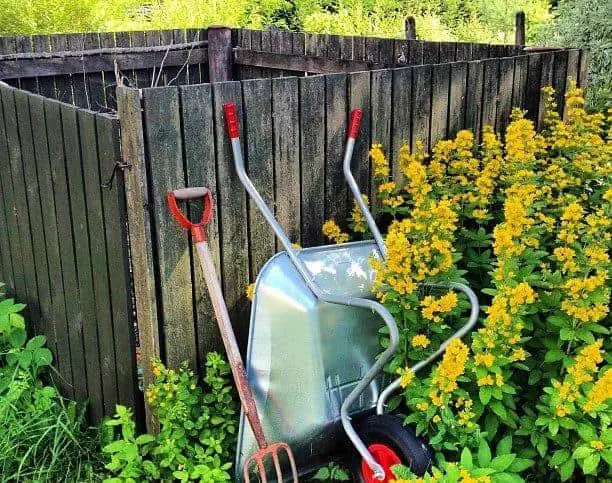
When adding extra resources, make sure to add the right mix of brown and green materials, or you risk throwing the ratio off and creating another problem!
With a bigger pile turning becomes even more important to help get oxygen to the middle.
If you’re composting in an apartment, you might find it hard to increase the size of your pile. The best thing to do here is to buy a specially designed bin like the Envirocycle that holds a lot of compost without taking up much room.
Add in some more bacteria
To give your compost a helping hand, try adding some soil or compost starter.
As we explained above, it’s the growth of bacteria that generates heat.
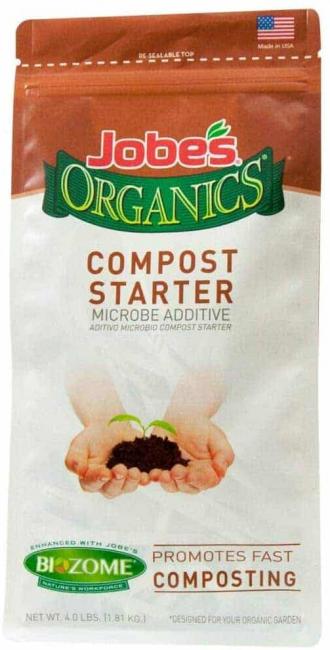
Soil and compost starters naturally contain the correct micro-organisms needed for composting so will quickly speed up the process. Think of it as inoculating your pile.
Compost starter is the better option because it’s much richer in microbes than ordinary soil.
Finished compost from a different batch of compost can also act as a compost starter. Also, if when you screen your compost there are some leftover materials that haven’t fully decomposed, such as avocado pips, then you can save these to inoculate your next batch.
Place your compost bin in the sun
The outside temperature can affect how hot your compost gets. If it’s cold, then your compost will have a harder time heating up.
Moving your bin into the sun will help keep it warm. Just be sure to be extra vigilant when it comes to the moisture levels in your bin.
Tips for maintaining the heat
The first thing to note is not to worry too much about temperature fluctuations.
It’s natural to see a variation of temperatures as bacteria populations rise and fall.
The highest temperatures will only last a few days at most. Most composters try to get multiple temperature spikes over a period of months.
Here are few ways to help keep your pile hotter for longer.
Turn the compost
This is one of the easiest ways to maintain a high temperature.
Turning the pile with a pitch fork or compost aerator will mix everything together and give a boost to poorer performing parts of the pile, lifting the overall temperature.
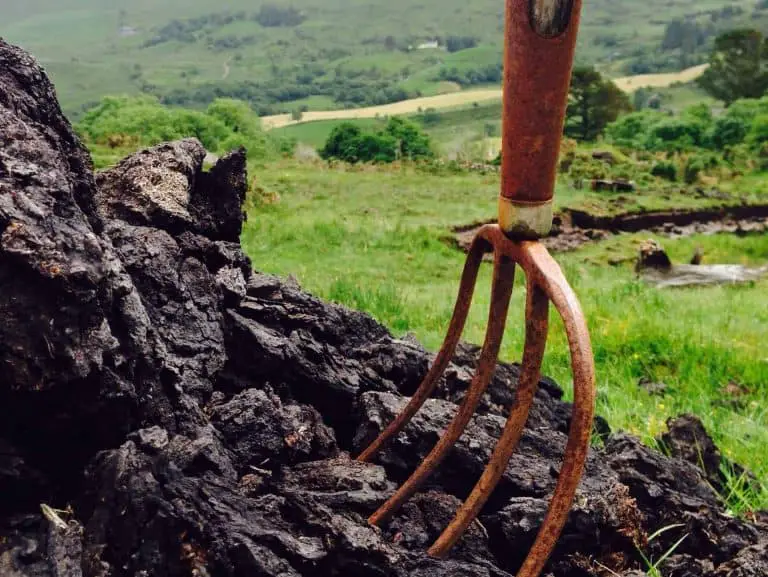
It also makes sure there is enough oxygen in the pile to keep the microbes happy.
Invest in a long-stemmed thermometer
If you have a compost thermometer, you can better monitor the temperature of your compost and see when it’s starting to fall.

This will give you a good idea of when you should turn your compost pile to get it heating up again or deploy one of the tactics above if you think there’s a bigger problem.
You don’t want the pile to get too warm (above 160) because this can kill off the good bacteria and halt any decomposition happening.
How to heat up compost in winter
During colder months it’s still possible for your compost to reach high temperatures following the guidelines above.
However, this heat will be lost faster.
Here are some tips for keeping compost piles warm in winter.
Insulate
Insulating your compost pile with extra brown materials such as straw, sawdust, and dry leaves will help it stay warm.
Covering the pile with tarp or strategically positioning it to shelter it from any wind and rain will also help.
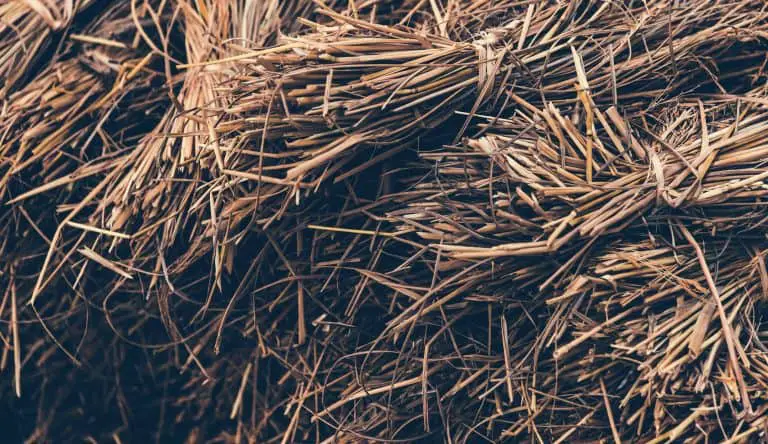
If you live somewhere that’s particularly cold, you could look at investing in an insulting compost bin.
The Aerobin is a double-walled continuous composter that’s lined with polystyrene to keep it producing compost all throughout winter.
For more information check out our guide to insulated compost bins.
Make an even bigger pile
Having a bigger pile will be especially helpful in the winter because it helps with heat retention.
If you have room in your garden, we recommend the pile is around 3 to 4 feet on each side.
Raise your compost
Winter can bring damp weather which can leave compost piles soggy as they absorb moisture from the ground.
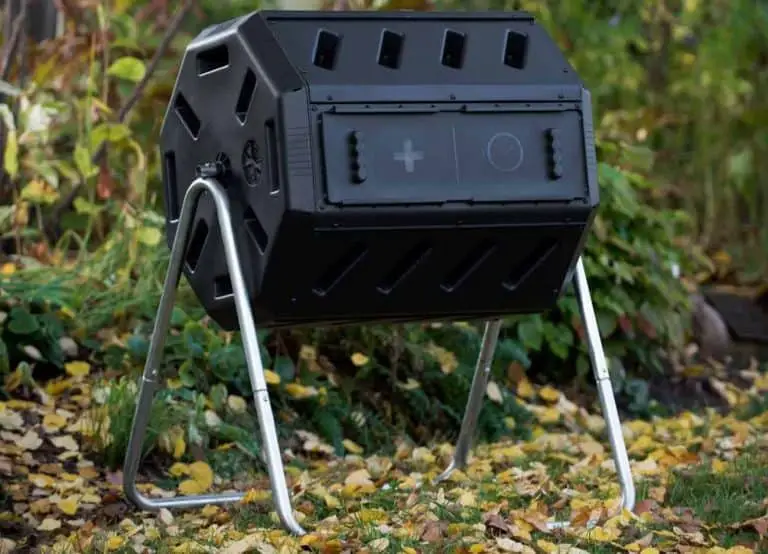
To stop this happening you could invest in a compost tumbler that allows your pile to sit off the ground.
I recommend the FCMP tumbler. It’s made using 100% post-consumer recycled compost and has aeration spikes to prevent your compost from clumping.
It also makes turning a doddle!
Benefits of hot composting
Heat is an essential part of any compost pile.
Ideal temperatures for fast decomposition are between 90 and 140 degrees Fahrenheit.
When your compost reaches around 130 degrees Fahrenheit it’s considered hot. At this temperature, the pile is hot enough to kill off most weeds, bugs, seeds, and harmful pathogens. We recommend the hot composting method if you’re composting human waste.
Higher temperatures also allow for more activity from the micro-organisms in the compost, helping to speed up the overall process and create high quality compost. A high concentration of microbes is especially useful if you plan on making compost tea.
If managed well, hot compost can break down in a matter of weeks (usually months), whereas with cold composting full decomposition can take years.
Summary
So there you have it, how to heat up compost fast.
In short, if your compost pile is not heating up it’s likely due to one of four things:
- not enough nitrogen
- too wet or too dry
- too small
- not enough of the right bacteria
Luckily, all of these things are relatively easy to fix.
